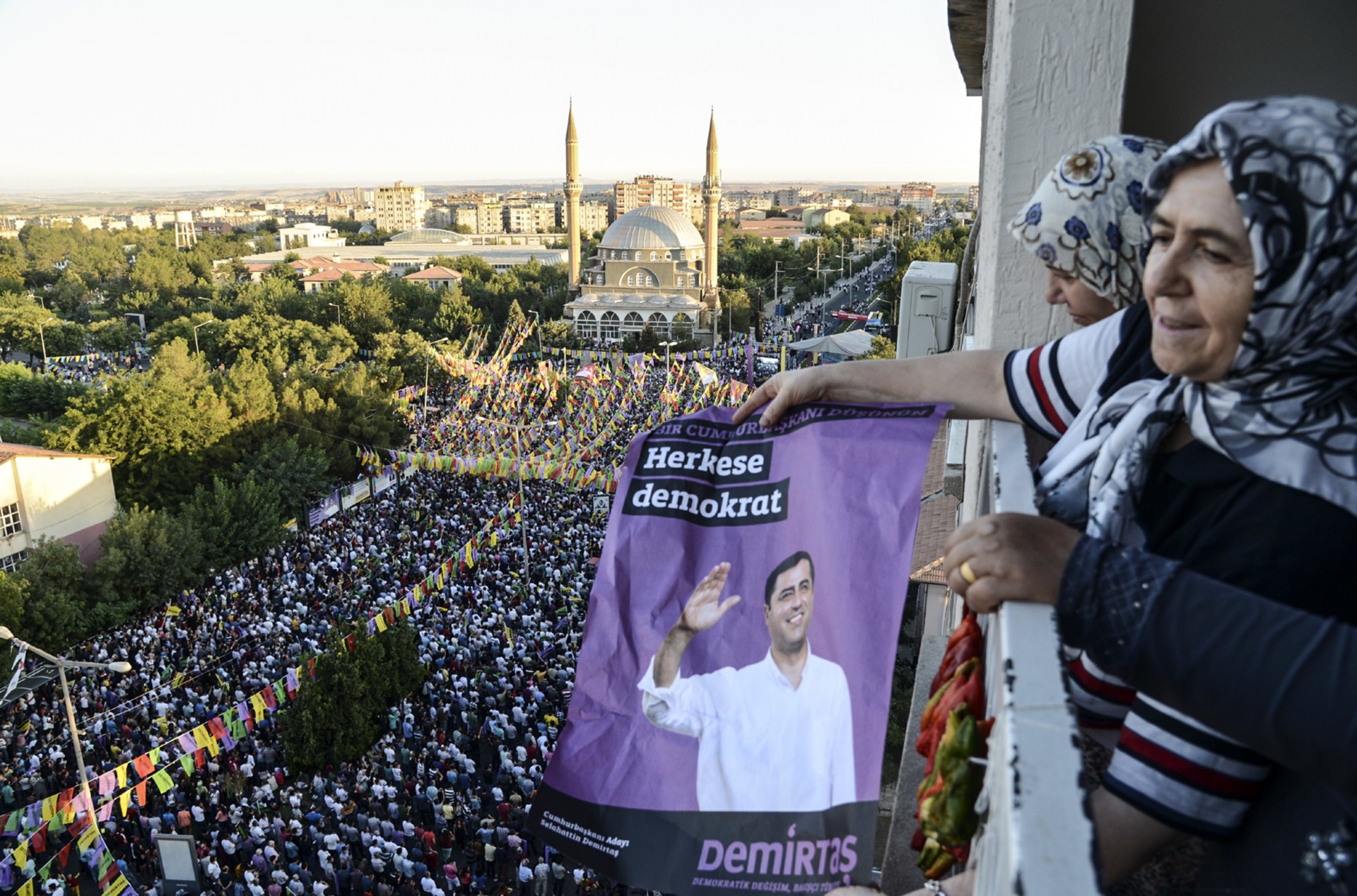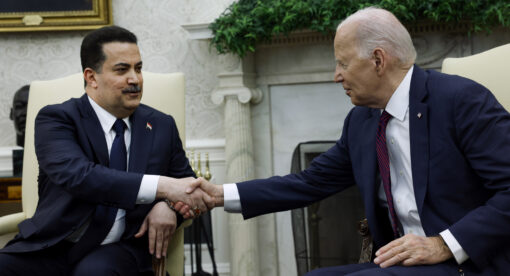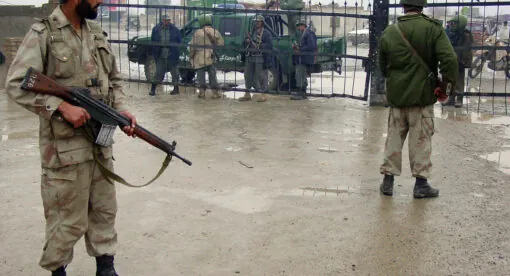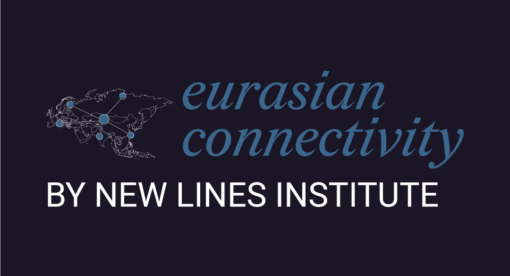The Turkish government is working to shut down the Democratic Peoples’ Party, the latest in a long line of popular pro-Kurdish parties to be threatened with a ban. This first installment of a three-part analysis looks at the cycle of ascent and suppression pro-Kurdish parties have experienced and the importance of local-level success and support for those parties.
Editor’s Note: This is the first installment of a three-part analysis that will discuss the pro-Kurdish party’s strategy on both local and national levels, and in terms of integration into a coalition. For the purposes of this analysis, the author uses “pro-Kurdish” to describe a particular facet of Kurdish representation and activism: the promotion of Kurdish culture, political involvement, and Kurdish identity. There have always been Kurds active in Turkish politics working outside of this pro-Kurdish definition. This analysis centers on the work of pro-Kurdish political parties and is not meant to be an all-encompassing account of Kurdish involvement in Turkish politics.
A newly accepted indictment threatens to shut down Turkey’s pro-Kurdish Democratic Peoples’ Party (HDP) for good. This challenge is nothing new for pro-Kurdish parties, and the HDP and its predecessors have looked to past cases for survival strategies. As Kurdish affairs expert and political science professor Dr. Nicole Watts outlines in her 2011 book, “Activists in Office: Kurdish Politics and Protest in Turkey,” the history of Kurdish political activism and state repression is cyclical. This attempt to shut down the HDP represents both a continuation of this cycle and a significant loss to the opposition as a whole. The movement’s shift from a local/regional party to the national stage has elevated and expanded the anti-democratic effects of President Recep Tayyip Erdoğan’s crackdown on the HDP, normalizing such actions against opposition parties.
The indictment, presented by the chief public prosecutor of the Court of Cassation, threatens to ban over 600 HDP politicians and members. HDP co-chair Pervin Buldan insists that the party is preparing to re-form if needed and rely on old tricks to tackle new threats, saying, “If the HDP is shut down of course we have our own preparations. We come from such a tradition which has always had parties being shut down.” However, if the HDP survives the attempted ban, the pro-Kurdish movement will face challenges even from within the largely divided nationalist opposition movement.
Pro-Kurdish parties’ historical strategies of survival, as well as the oppressive measures used to silence them, offer insight into the current political environment as Erdoğan seeks to divide and purge the opposition before the 2023 elections. Many of the strategies the HDP could look to were pioneered at the local level by mayors adopting and sustaining the pro-Kurdish agenda.
The Legacy of Pro-Kurdish Mayors
Before the HDP brought Kurdish and progressive issues to the national stage, Kurdish and leftist parties had for decades campaigned on these same platforms at the local level. The first of these successful, pro-Kurdish politicians was Mehdi Zana. Zana, who had legally changed his name from the Turkish Bilici, was a tailor-turned-politician involved with both the left-wing pro-Kurdish Revolutionary Eastern Cultural Association and the communist Workers’ Party of Turkey, but in 1977 he ran for mayor of Diyarbakır as an independent. Zana won, as did one other independent candidate: center-right politician Hamid Fendoğlu, who became mayor of Malatya. Fendoğlu was assassinated four months into his term, but Zana went on to be one of the first mayors to outwardly promote Kurdish rights and culture.
As the mayor of Diyarbakır, Zana used many of the survival strategies the HDP would adopt in the 2010s as they expanded into a national movement. He worked with unions and students, formed bonds with sympathetic European countries and organizations, and broke into a position typically reserved for upper-class local notables. Yet, like his successors 50 years later, Zana was similarly constrained by overwhelming municipal debt, Kurdistan Workers’ Party (PKK) activity within the city, and unrelenting criticism of his pro-Kurdish stance, which, Watts wrote, landed him in prison two years after his election. The torture Zana endured in prison inspired his wife, Leyla Zana, to become politically active and seek justice for other imprisoned activists. Today, the vast majority of municipalities held by mayors not unlike Mehdi Zana are under the control of trustees, and their mayors share Zana’s ill fortune. Zana had built the first Kurdish “castle,” as it would come to be known, in Diyarbakır, but as Watts noted, it would not be the last.
Throughout the 1980s and 1990s, pro-Kurdish parties continued to expand their resources through local activism and national parties even as the formation of the PKK created a new rivalry within the pro-Kurdish cause, according to Watts. After withdrawing from elections from 1994 to 1999, pro-Kurdish politicians in the People’s Democracy Party came back with a vengeance and initiated a regional revolution inside Kurdish majority cities. In her “Activists in Office,” Watts noted that by the early 2000s, pro-Kurdish politicians had adopted a new focus: making Kurdistan within Turkey. After facing severe persecution in parliament, she wrote, the parties focused on local empowerment and unified under one national party. Much like Zana had in the late 1970s, pro-Kurdish mayors used their municipal resources to promote Kurdish culture, capitalize on patronage politics, access and incorporate EU support for Kurdish projects, and legitimize pro-Kurdish enclaves in the southeast. These pro-Kurdish “castles,” like Diyarbakır, represented invaluable opportunities for parties to produce tangible results for their constituents on a local level in areas long neglected by the central state.

These People’s Democracy Party members were met with intense backlash. Representatives were condemned, arrested, and even assassinated. Nevertheless, the mayors elected in 1999 pressed forward at the local level with great success. In contrast to the assassinations and mass violence perpetrated by nationalist extremists and the re-emergence of the state security courts in the 1980s, from 1999 onward attacks against pro-Kurdish politicians more commonly took the form of legal and bureaucratic mechanisms of repression, according to Watts. Unlike their parliamentary peers, local representatives lacked the vital gift of parliamentary immunity and thus often bore the brunt of the repression in its early phases. These local stalwarts kept the movement alive at a time when the Democratic People’s Party faltered at the national level. Yet Kurdish assimilation in the cities and the rise of the conservative Justice and Development Party thwarted the party’s attempts at growing beyond a regional movement.
The Rise of the HDP
Building upon the local empowerment of the late 1990s and early 2000s, the HDP emerged from a coalition of local branches known as the Peace and Democracy Party (BDP) in 2012. The pro-Kurdish party’s push for “democratic autonomy” offered an alternative to the violent, separatist demands of the PKK while maintaining the assertion that Kurdish-majority areas should be governed by locals. This call for regional autonomous governance took on new meaning after the flare-up of the PKK conflict in 2015, and Erdoğan quickly denounced the HDP’s declaration of “democratic autonomy” as “treasonous.” The somewhat vague term “democratic autonomy” manifested in a variety of ways in the HDP’s political activism. First, the party adopted a grassroots, bottom-up approach across the southeast relying on the support of trade unions, human rights groups, Kurdish activists, feminist organizations, and their local fraternal party, the BDP. Their dual-focused approach had the BDP employ rhetoric more directly focused on Kurdish autonomy and Kurdish rights, while the HDP focused on broader democratic and human rights policies. By the mid-2010s, the brother parties were proving successful at the local level and were ready to reach beyond.
The 2014 nationwide local elections were the HDP’s first test of this method. In the previous local elections, the Democratic Society Party had won 5% of the vote, a nominal gain in local seats. In 2014, the BDP and HDP continued this trend, winning over 6% in total. While this success may appear marginal, the results proved that the HDP’s strategy worked. The success was apparent not in the BDP’s victory across the southeast, but in the HDP’s success in municipalities outside of the traditionally pro-Kurdish base. After the 2014 local election, the BDP transformed into the Democratic Regions Party (DBP), renamed in recognition of the potential of this strategy. At the same time, HDP leader Selahattin Demirtaş had proven a charismatic and refreshing presidential candidate for some leftists in the 2014 election, and the HDP was showing that it could represent more than just a pro-Kurdish movement in the southeast. Less than a year later, the HDP won 13% of the vote in the parliamentary election. This marked the highest electoral success of all time for the pro-Kurdish movement.

Shortly after the July 2015 general election, Erdoğan’s ruling party recognized the HDP’s electoral success at both the national and local levels and initiated a campaign to replace and detain HDP representatives across the southeast. Arresting and detaining politicians in Turkey are historically common practices, particularly in the post-coup periods (of which Turkey has many). The use of this tactic against HDP mayors, parliamentarians, and administrators serves to distract, intimidate, delegitimize, and impede work within the party that has been targeted. Mass investigations often also include the confiscation of party property and materials. While many of the investigations did not lead to a conviction, they served to terrorize the party.
Politicians and activists have also suffered extended pretrial detainment, a practice that has only grown more common in recent years. Prior to the 2016 coup attempt, the survival of the HDP and the retention of its representatives relied on diversity of thought in the judiciary. However, as Erdoğan reconsolidated his grip on the judiciary from top to bottom in order to strip Gü and any other dissenters from the branch, the discrepancies between judges significantly narrowed.
The resurgence of the PKK conflict and the broad powers the ruling party acquired after the coup attempt also gravely affected local advocacy. The mass introduction of kayyims (state appointed trustees), curfews, destruction from the 2015 conflict with the PKK, and measures enacted under a type of martial law known as OHAL (State of Emergency Rule) curtailed HDP/DBP mayors’ efforts to implement laws, control their budgets, and continue their democratic autonomy project. Kayyims introduced new laws and regulations, such as the ban of the 2017 HDP campaign song urging voters to vote no on the 2017 constitutional referendum. They also extravagantly remodeled municipal bathrooms and sold historic land. Perhaps most illustrative of the environment in these contested municipalities are photos of the sign battle across the historic district of Sur, Diyarbakır, in 2019. Former Trustee District Governor Abdullah Çiftçi ordered flyers to be put up listing out the services provided during his tenure. The HDP mayor, Filiz Buluttekin, responded by draping a large banner over the Sur municipal building itemizing the debts incurred by the trustee government. Later that year, the municipality fell back into Çiftçi’s hands following Buluttekin’s arrest.
In 2019, representatives from the DBP replaced many of their incarcerated HDP peers. This strategy may prove a vital one for the continuation of the movement should the HDP ban pass. Yet the DBP is not without its own troubles. The local party has also experienced mass arrests of members and has lost the majority of its municipalities to trustees. By 2017, the government had “taken control of 82 municipalities won by the DBP and suspended their democratically elected co-mayors under suspicion of terrorism offenses, with 90 of them jailed pending trial,” according to a Human Rights Watch report. Of the 105 municipalities HDP and DBP had won in 2018, 95 were put under the control of trustees by 2019. Preceding this, several co-mayors and other local representatives were refused their mandate in accordance with OHAL.

Pro-Kurdish mayors and their local movements played vital roles in keeping the pro-Kurdish agenda alive and relevant. Their activism created a subset of politicians devoted specifically to a pro-Kurdish agenda and established a synonymous pro-Kurdish identity within the political system. These local political activities built the foundation upon which national and parliamentary activism could develop. Their legacy inspired a new generation of pro-Kurdish politicians as they made their way to the parliamentary ticket. The evolution of the pro-Kurdish political movement into a parliamentary and national phenomenon did not fundamentally change the local movement but rather built upon it to form a new leftist coalition for the 2015 elections.
Kayla Koontz studies Kurdish insurgent groups and political movements in Turkey, Iraq, and Syria. Koontz holds an MA from UC Berkeley in Global Studies. She has previously written for the Middle East Institute and Bellingcat and studied and worked in Turkey. Follow her on Twitter at @kay_koontz.
The views expressed in this article are those of the author and not an official policy or position of the New Lines Institute.






